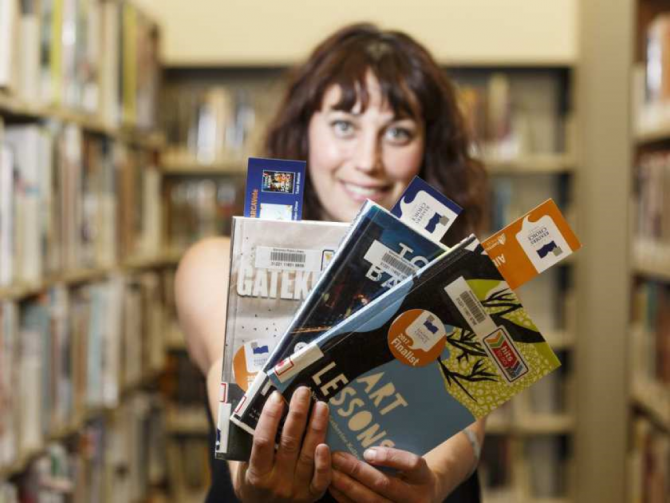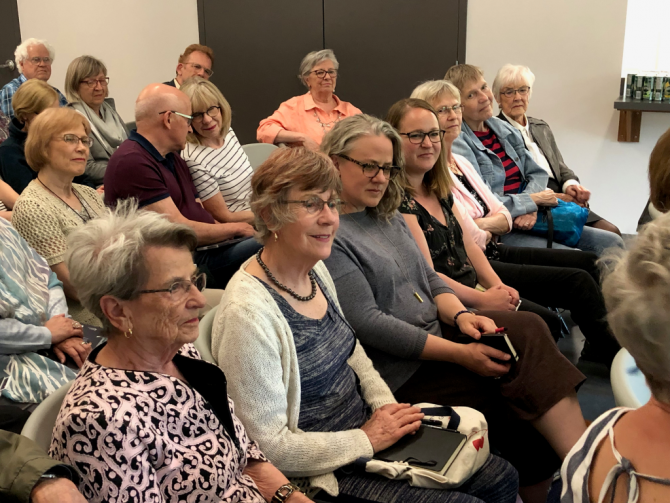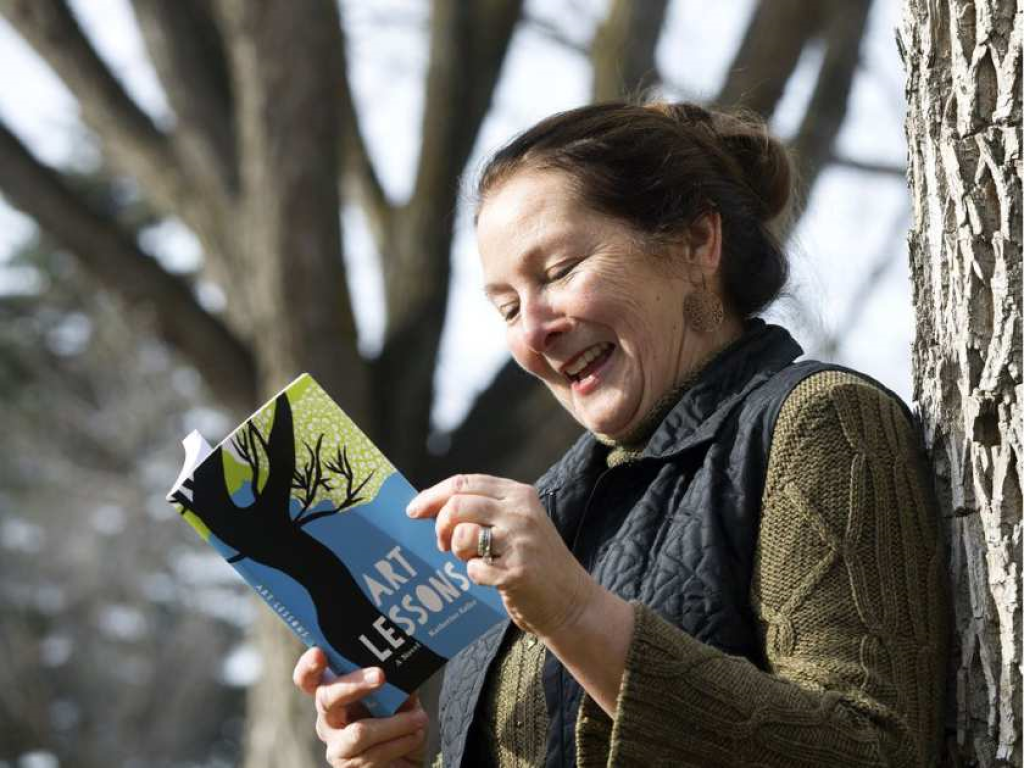When talking about Art Lessons, my crossover novel about becoming an artist, I often find that readers tell me they are not artistic, that they could never write or draw. My reply is this: readers are artists. Reading is an art form, because it requires many of the same skills as making art. When we read, we are making the novel, the story, the play, the poem, the memoir, with the author. On the shelf, the pages are simply full of black marks, but the book comes alive in our hand, our ear, our eye.
We co-write.
We essentially co-write when we read. We fill in so many gaps, gaps left specifically for us to fill in. Writers know that readers love to be engaged and care about characters, and that for characters to “be somebody” and come to life, they must have the help of readers who will give them humanity. Readers do that by bringing all of what we know, what we’ve seen, where we’ve been, to the writing. We simply add on. We embellish, we furnish, we clothe, because we feel, we think, we understand, we empathize.
We curate.
When we read, we not only decide what to read, but we make choices based on our past reading. We also use book reviews, listen to others’ recommendations, look at prize lists, search for similar titles to our faves. We research and read, then, with intention. This is also how artists create, with a purpose, a goal, or at least an exploration in mind.

We collaborate.
This comes from the reviews, word-of-mouth recs, or, best of all, when another person gives us a book they think we’ll enjoy. Reading can be done alone or aloud to each other (one writer I know reads to her partner when they drive long distances, and vice versa when she drives). Talking about the reading is where we provide our interpretations, ask questions and expand our understanding of the writing. Book clubs provide this opportunity, but the person who reads the book you were given also wants to know what you thought about it. Artists are also collaborators, learning from each other constantly and working together, be it as teacher-student, editor-writer, director-performer or many other ways.
We critique.
This is when the reader may send a note to a writer to give their opinion on a piece. I long ago adopted the practice of sending what I call “charming notes” to writers of books I loved. I always say why, which is what authors ache to hear. They want to know what part of the story touched you, and why. Sometimes as readers we have extra insight, experience or research on the topic or characters to offer, and this is always interesting to a writer. I have had readers and listeners inspire me to write the story after the story, write the story in a new form to include the new material I’ve only that second realized is waiting for me or consider a side character for a whole new story of their own. These interactions are golden for writers. This is also where you can gently inform a writer of a new fact or correct a detail they may have missed or mistaken.

We celebrate.
When we have read a book that really satisfied, seen a play that provoked us or heard a poem or song that felt as though it was written precisely for ourselves, we like to tell others. We love to celebrate the glimpse of humanity contained and captured in the dance, the opera, the painting. Sharing our reading, through social media or in person, is part of the reading. We celebrate authors who know us, somehow, without having met us. We read their entire backlist. We look forward to their next local reading, so we can hear their voice, tell them in person how much their work means to us, get our books autographed, snap a selfie together. We continue the conversation.
We change.
Reading changes us. We may not feel it at the exact moment in time, but reading about other people, places and situations expands our world. We learn. We go through the same journey as the characters so, like them, we change by the end of the story. When we step out of our comfort zone, we become more sensitive to others, more empathetic, more tolerant.
Oliver Wendall Holmes said, “A mind that is stretched to a new idea never returns to its original dimension.” As a reader I find that notion extremely comforting but as a writer I feel its inherent responsibility. Reading increases our emotional intelligence and, like the writer who has learned so much in the writing of the piece, the current book prepares us for the next one. In the words of Ursula K. Le Guin, “We read books to find out who we are. What other people, real or imaginary, do and think and feel... is an essential guide to our understanding of what we ourselves are and may become.” And so, we grow.
Katherine Koller is a 2019 Capital City Press Featured Writer. Check out her list of books she's most enjoyed in the last few years below.



Add a comment to: Reading is an Art Form